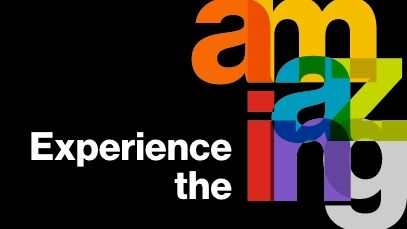Vanda Bazdan
Lecturer
RIT Croatia
Select Scholarship
Journal Paper
Samardzija, Jasminka, Joseph Kevin Walker, and Vanda Bazdan. "Career Development and Personal Success Profile of Students - followers and Students - potential future leaders: The Case of RIT Croatia." Journal of Contemporary Management Issues 22. (2017): 85-107. Print.
Agušaj, Besim, Vanda Bazdan, and Dina Lujak. "The Relationship Between Online Rating, Hotel Star Category and Room Pricing Power." Ekonomska Misao i Praksa 1. (2017): 189-204. Print.
Komnenic, Pavle, Vanda Bazdan, and Besim Agusaj. "The Organizational Climate and Employee Turnover Intention in Dubrovnik Hotels." RIThink 5. (2016): 7-14. Web.
Published Conference Proceedings
Lujak, Djina, Besim Agusaj, and Vanda Bazdan. "The Relationship between Online Rating, Hotel Star Category and Room Pricing Power." Proceedings of the SINCERE Dubrovnik. Ed. NebojÅ¡a StojÄić. Dubrovnik, HR: n.p., Print.
Currently Teaching
ANTH-210
Culture and Globalization
3 Credits
By exploring critical issues of globalizing culture, we examine how ideas, attitudes, and values are exchanged or transmitted across conventional borders. How has the production, articulation, and dissemination of cultural forms (images, languages, practices, beliefs) been shaped by global capitalism, media industries, communication technologies, migration, and tourist travels? How are cultural imaginaries forged, exchanged, and circulated among a global consumer public? How has the internationalizing of news, computer technologies, video-sharing websites, blogging sites, and other permutations of instant messaging served to accelerate cultural globalization? Students will be introduced to anthropological perspectives on cultural globalization, the transmission of culture globally, and the subsequent effects on social worlds, peoples, communities, and nations.
ANTH-301
Social and Cultural Theory
3 Credits
This course explores influential classical and contemporary theories regarding society and culture. Students will assess the utility of different theories in addressing key enduring questions regarding human behavior, the organization of society, the nature of culture, the relationship between the individual and society, social control and social conflict, social groups and social hierarchy, the operation of power, cultural and social change, and the interplay between the global and the local. Theories will be marshaled to shed light on contemporary social and cultural phenomena and problems such as crime, violence, exploitation, modernity, and globalization.
ANTH-380
Nationalism and Identity
3 Credits
Nationalism is often described in terms of strong sentiments and acts of self-determination on the part of members of a nation as distinct from the state that is necessarily a territorially and politically defined entity. This course will explore leading theories related to the origins of contemporary nationalism and nationalism's importance within the context of state societies, especially in Europe. The past as an invented historical or imagined reality will be highlighted, as invented pasts contribute to claims for exclusive national culture and both exclusive and contested identities. The relationships between culture, literacy, and capitalism will be applied to understanding select historical and ethnographic cases of nationalism.
PHIL-101
Introduction to Philosophy
3 Credits
Philosophy is about the rigorous discussion of big questions, and sometimes small precise questions, that do not have obvious answers. This class is an introduction to philosophical thinking where we learn how to think and talk critically about some of these challenging questions. Such as: Is there a single truth or is truth relative to different people and perspectives? Do we have free will and, if so, how? Do we ever really know anything? What gives life meaning? Is morality objective or subjective, discovered or created? We’ll use historical and contemporary sources to clarify questions like these, to understand the stakes, to discuss possible responses, and to arrive at a more coherent, more philosophically informed, set of answers.
PHIL-202
Foundations of Moral Philosophy
3 Credits
This course is a survey of foundational, and normative, approaches to moral philosophy and their motivating moral questions. Topics will include virtue ethics, deontology, consequentialism, and other approaches. Some of the questions to be examined are: How is human nature related to morality? What are the grounds for moral obligations? Is there an ultimate moral principle? How do we reason about what to do? Can reason determine how we ought to live? What are moral judgments? Are there universal goods? What constitutes a morally worthwhile life? Can morality itself be challenged?
SOCI-102
Foundations of Sociology
3 Credits
Sociology is the study of the social world and socialization processes. Sociologists study the broader picture of how societies are structured and organized through a macro-sociological analysis as well as how individuals create their own social reality symbolically through their interactions with others in a micro-sociological analysis. Students in this course will learn the fundamentals of each approach and come away with a sociological framework which they can critically apply to their own lives.
SOCI-230
Sociology of Work
3 Credits
This course analyzes and assesses social relations of paid labor. Sociology's major ideas about the ways we work will be examined and applied to numerous important topics such as: workplace organization, unions, labor legislation, health and safety, workplace culture, interplays between work and family, experiences of work as alienating or satisfying, inequalities at work, and social mobility.







